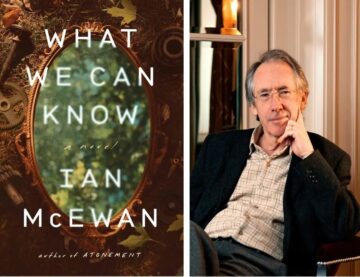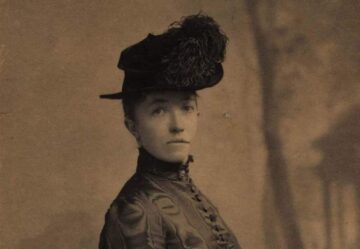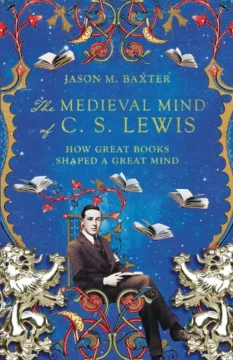by Leanne Ogasawara

Which do you think is worse: a scenario in which every single email you ever wrote, (including all the drafts) and every last photo and video you ever took, are stored on the cloud for eternity. This is made publicly available, and is used to construct a book about your life.
OR
You destroy all trace of yourself in the digital record, and still a novelist uses your life as fodder for material, attributing thoughts and experiences to you, using your real name in the story, relating things that never happened.
1.
Set one hundred years in the future, the world depicted in Ian McEwen’s new novel, What We Can Know, is a very different one from our own...
by Leanne Ogasawara

Which do you think is worse: a scenario in which every single email you ever wrote, (including all the drafts) and every last photo and video you ever took, are stored on the cloud for eternity. This is made publicly available, and is used to construct a book about your life.
OR
You destroy all trace of yourself in the digital record, and still a novelist uses your life as fodder for material, attributing thoughts and experiences to you, using your real name in the story, relating things that never happened.
1.
Set one hundred years in the future, the world depicted in Ian McEwen’s new novel, What We Can Know, is a very different one from our own. War and climate disaster have reshaped everything (surprise, surprise). The oceans have risen, and England is now an archipelago. Meanwhile, North America is ravaged by warlords and gangs, and China’s thirty-year experiment with democracy is collapsing amidst the people’s growing desire to wage war on Nigeria, a country which is now the sole remaining superpower and the only place which has managed to keep the lights on.
In England, people mainly eat protein bars and drink acorn coffee. The population has been halved. It’s not such a dire place when the story opens. It’s just harsher, with daily life more constrained. And not surprisingly people look back with longing—and also fury—to the people of our day.
We had so much. Oceans filled with fish and all those vineyards producing delectable wines. In the Age of Derangement, a term borrowed from Amitav Ghosh, why was our relentless avarice allowed to ravage the world unchecked?
One thing that has not changed over the hundred years separating our time with theirs is the human predilection for love and obsession.
Take the novel’s protagonist. Thomas Metcalfe is an academic in the Humanities—a field which has somehow survived to the year 2119, but only barely. Professors are sharing seven to a bathroom and there is no money. And yet, that does not stop Metcalfe from devoting himself to unraveling a certain poem by the poet Francis Blundy. Despite not having access to the work itself, he knows from the massive amounts of data that it did once exist and that it was read aloud by the poet at a legendary dinner party that occurred in 2014, when Blundy, one of the most renowned writers of the time, recited from memory what was a love poem for his wife.
McEwan says he was inspired to write this novel after his own reading of a John Fuller poem called “Marston Meadows: A Corona for Prue,” saying he knew he had to write a novel about it as soon as he read it.
Unlike Fuller’s real-life poem, however, the one in the novel has completely disappeared from the record. It is a missing masterpiece, and all future academics are left with are rumors about the work.
Well, more than rumors, for stored on the cloud is every email the poet ever exchanged, including the drafts of unsent emails, his letters and diaries, YouTube videos, you name it, it is all there to be accessed by the people of the future. For it turns out privacy stopped existing around 2014. People today are rightfully concerned about AI utilizing their data, but that data is already being stored and has been since the start of Google and social media. It is all there in the cloud.
At one point the academic of the future thinks:
“I’d like to shout down through a hole in the ceiling of time and advise the people of a hundred years ago: If you want your secrets kept, whisper them into the ear of your dearest, most trusted friend. Do not trust the keyboard and screen. If you do, we’ll know everything.”
But can this mountain of data be an accurate rendering of a person’s life?
 2.
2.
In contrast to this is Emily Franklin’s 2023 best-selling novel based on the life of museum founder and philanthropist Isabella Gardner Stewart, The Lioness of Boston.
Franklin did not have the luxury of letters and diaries to construct her narrative since Gardner intentionally burned all her personal papers and letters before she died—something that was more common to do in that time period. She wanted her art collection and museum to stand as the sole testament of her life. And so, in many ways, Franklin’s novel is more a product of the novelist’s imagination, perhaps highlighting our own contemporary concerns rather than being anything like what Gardner was actually thinking or feeling.
How awful to have words put in your mouth and intentions placed in your heart when you are not around to contradict the account, but what is a novelist to do?
Have you ever met anyone with absolutely no Internet presence?
I have a friend like this. He who shall not be named did not even go through all the trouble to rid the online world of his persona, which I have heard is something you can pay to do for a lot of money, since he willfully refused to leave a trail in the first place (Or so he says).
Now that is a very hard thing to do. But if you try and Google his name, you will get nothing. It’s almost like he doesn’t exist. Does that strike you as a massive red flag or do you think he is smart to protect his privacy that much? He does not go on social media whatsoever and he has special email accounts with fake names for the rare comments he might leave online—nothing to connect to his Proton mail under his real name—if it is even his real name. Well, I do think it is his real name since he once went into a fury when I named a character after him in a short story. I changed it in the face of his anger, but I still sometimes fantasize about writing a novel about a person (him) who is hiding something (or not hiding something, I still can’t quite figure him out though we have been frenemies for many years).
In 2025 someone with zero online presence does feel like an oddity—like he’s not real. But then, he would say he is more real because his life is all “in real life!”
 3.
3.
CS Lewis once described the people of the Middle Ages, not as a pack of barbarians, but as a literate people who had simply lost all their books. Likening them to castaways washed ashore with just a few of their greatest volumes, the medievals, he said, set out to rebuild their civilization. Not an easy task to be sure; for not only had they lost most of their library, but what did survive, survived by nothing other than mere chance. This is how it came to pass that while all of Socrates was lost, parts of Plato’s Timaeus somehow made it. (Of all the works by Plato, the Timaeus might be the last one that could have been any use to the people!) It would take centuries to rebuild what disappeared–and this done through Latin translations made via the Arabic ones.
This is in stark contrast to the world depicted in McEwen’s novel, where it was the library that survived. Despite losing half the people, the books, emails and videos were saved. But even with all that preserved in the twenty-second century, still the protagonist wonders: what can we really know? This is especially true in recent times when we create –and curate—online personas. Trying to do everything we can do look good to others, body mind and soul, it is more performance than anything else. Like my friend, I also have become more and more wary of being online. I cringe to share things personal anymore and yet I also hate how fake my life must seem. You want to say, that’s not really me.
But then even in real life, how much can we really know another person? Years before the internet I became obsessed by this when I saw a movie called the Music Box with Jessica Lange about a family who had absolutely no idea the atrocities their family patriarch had committed during World War II. I could not believe that something like that was possible, but I was still quite young.
This unknowability of people is brought home in the second half of McEwen’s novel, when the poet’s wife from that 2014 dinner party recounts what REALLY happened. And much like in Katie Kitamura’s recent Booker shortlisted novel (which might win!) there are some surprising revelations when we look at the same story from a different point-of-view! Not only do historians routinely get things wrong, McEwen seems to be saying, but so do we, when we misunderstand and misinterpret other people’s lives and relationships when viewing from the outside. Online or in real life. And in Kitamura’s novel, this unknowability even extends to how we understand our own lives. There is a vast difference between what we actually know and What We Can Know, which we do not often acknowledge or even realize.
And this danger, so exacerbated by the offloading of meaning to algorithmic methods—is something brilliantly shown in McEwen’s novel—which is, dare I say? A masterpiece.
++
In the future people no longer read aloud. They are almost completely online. Students at universities relying heavily on AI for everything. The 2014 poetry reading happened at a dinner party that was modelled on the real-life one that occurred in 1817 with Keats and Wordsworth among other luminaries, known as the immortal dinner party.
For more:
My review of Katie Kitamura’s new book Audition, in the Harvard Review My Substack post on another Booker shortlisted book, Susan Choi’s Flashlight and the North Korean abductions of Japanese citizens